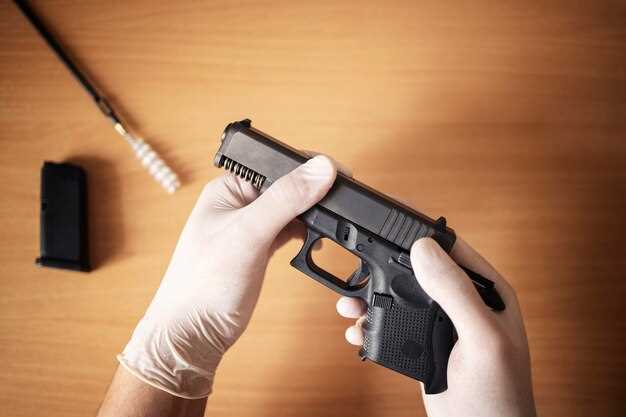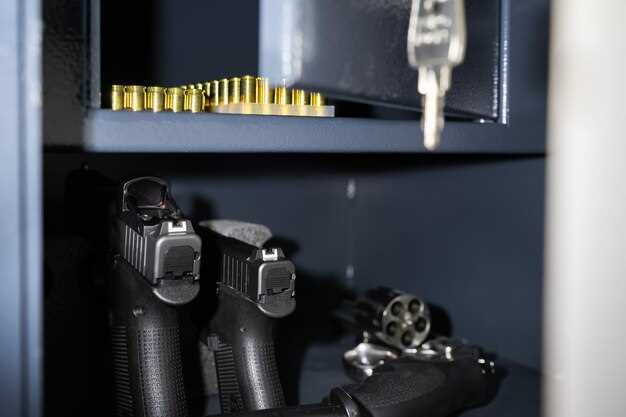
How to safely transport your firearms

Traveling with your firearm demands careful consideration and adherence to specific regulations to ensure safety and legality. Whether you are heading to the shooting range, a hunting trip, or moving to a new location, understanding the proper methods for transporting firearms is crucial. Improper handling could lead to accidents, legal issues, or damage to your firearm.
One of the most important aspects of safely transporting your firearm is using a reliable case. A high-quality case not only protects your firearm from physical damage but also helps to keep it secure from unauthorized access. Selecting the right case for your needs–whether hard or soft–can make a significant difference in ensuring that your firearm remains in optimal condition throughout your travels.
Additionally, familiarizing yourself with local laws regarding firearm transport is essential. Regulations can vary significantly between jurisdictions, affecting factors such as how firearms must be stored during travel and whether they should be unloaded. By adhering to these guidelines, you not only protect yourself legally but also promote responsible firearm ownership.
Choosing the Right Firearm Case for Travel

When transporting your firearm, selecting the appropriate case is crucial for both safety and compliance with legal regulations. The right case not only protects your firearm from damage but also ensures that it is securely stored during travel.
First and foremost, consider the type of firearm you have. Different firearms, such as handguns, rifles, and shotguns, require specific case designs. For example, a handgun case should provide sufficient padding and be compact, while a rifle case needs to be longer and sturdier to accommodate its size.
Next, assess the level of protection you need. Hard cases offer superior protection against impacts, making them ideal for air travel or long-distance transport. Soft cases, while lighter and more portable, may not provide the same level of security. If you choose a soft case, ensure it is well-padded and made from durable materials.
Furthermore, check if the case has secure locking mechanisms. Many travel regulations require firearms to be stored in a locked case, so investing in a case with quality locks is essential. Some cases may also allow for the addition of TSA-approved locks for travel by air.
Lastly, consider the added features that may enhance your travel experience. Look for cases with comfortable carrying handles, shoulder straps, or even wheels for easier transport. Additionally, some cases include compartments for ammunition and accessories, which can streamline your travel preparations.
By carefully evaluating your needs and the specifications of your firearm, you can choose the right case that ensures a safe and compliant travel experience.
Understanding State and Federal Travel Laws for Firearms

When it comes to transporting firearms, it is essential to understand both state and federal laws that govern travel with these items. Firearm regulations can vary significantly from one jurisdiction to another, making it crucial for gun owners to be well-informed before hitting the road.
At the federal level, the Gun Control Act outlines specific provisions regarding the interstate transport of firearms. Under this law, individuals are permitted to transport firearms across state lines as long as they are legally possessed in the starting state. Additionally, firearms must be unloaded and secured in a case during travel. This applies not only to rifles and shotguns but also to handguns.
However, individual states may impose their own requirements and restrictions regarding firearm transportation. Some states have laws that mandate firearms to be stored in specific ways, while others may have restrictions on the type of firearms that can be transported. It is imperative for travelers to research the laws of each state they plan to pass through or visit, as a violation can lead to serious legal consequences.
In certain states, a case may need to be rigid or locked, while others may allow for firearms to be stored in a vehicle’s trunk. Furthermore, local laws might dictate whether firearms are permitted in specific areas, such as national parks or public buildings. Always ensure that your travel route and destination comply with these regulations to avoid complications.
In conclusion, comprehending both state and federal travel laws regarding firearms is critical for responsible gun ownership. To ensure compliance, always confirm the specific requirements for each state on your travel agenda. This proactive approach will help you safely transport your firearms without facing legal issues.
Best Practices for Packing and Securing Your Firearms During Transport
When transporting firearms, it is essential to prioritize safety and compliance with local laws. Proper packing and securing of your firearm not only protect the weapon but also ensure that you meet legal requirements.
First, always use a sturdy case specifically designed for firearm transport. A hard case is preferable, as it provides superior protection against impacts and environmental factors. Make sure the case is securely locked to prevent unauthorized access.
Before packing, unload your firearm completely. This includes removing all ammunition and ensuring that the chamber is empty. Always double-check to confirm that the firearm is not loaded before placing it in the case.
Utilize foam inserts or padding inside the case to prevent movement during transport. This cushioning protects the firearm from scratches and potential damage. Additionally, if you transport multiple firearms, separate them within the case, using dividers or additional padding to avoid collisions.
When securing the case in your vehicle, place it in a location where it cannot shift during transit. Ideally, store the case in the trunk or another closed compartment. Avoid putting the case in plain sight, as this may attract unwanted attention.
Familiarize yourself with the legal regulations surrounding firearm transport in the areas you will be traveling through. Laws can vary significantly by state or country, so ensuring compliance is crucial to avoid legal issues. This may include specific requirements for locking mechanisms and case types.
Finally, always maintain a record of your firearms, including their make, model, and serial numbers. This documentation can be invaluable in case of loss or theft during transport.




